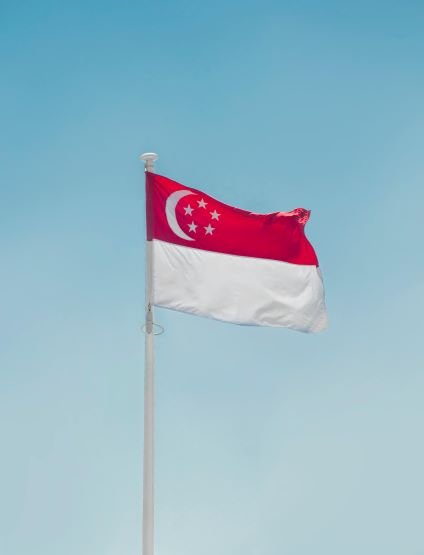
Singapore is often hailed as a beacon of modernity, offering world-class infrastructure, safety, and a thriving economy. For many, the city-state represents an alluring opportunity to elevate their careers and enjoy a cosmopolitan lifestyle. However, beneath its polished exterior lie challenges that can turn this “paradise” into a frustrating experience for expats. From exorbitant living costs to the pressures of a high-paced work culture, the reality often clashes with expectations. This blog explores the hidden struggles expats face, shedding light on why life in Singapore may not be as idyllic as it seems.

1. The High Cost of Living
One of the most pressing issues for expats in Singapore is the exorbitant cost of living. From sky-high rental prices to steep grocery bills, the financial burden can quickly become overwhelming.
1.1 Housing: A Financial Black Hole
Finding affordable accommodation in Singapore is notoriously difficult. Rental costs in desirable areas can rival those in cities like New York and London, and even modest apartments outside the central business district can drain your wallet.
1.2 Everyday Expenses Add Up
Groceries, dining out, and transportation are also far from cheap. Imported goods come with hefty price tags, and even local produce can be surprisingly expensive. These costs can quickly pile up, leaving expats struggling to maintain their standard of living.

2. Work-Life Imbalance
Despite Singapore’s reputation for efficiency, many expats report a severe work-life imbalance. Long working hours and high-pressure environments are common, especially in industries like finance and tech.
2.1 Overtime Culture
A pervasive culture of overtime can leave little room for personal time or family life. This can take a toll on mental health and lead to burnout.
2.2 Limited Vacation Days
Compared to other developed nations, Singapore offers fewer statutory vacation days, leaving expats feeling overworked and under-rested.

3. Social Isolation
Moving to a new country often brings challenges in building a social circle, but expats in Singapore report a particularly tough time.
3.1 Cultural Barriers
While English is widely spoken, cultural differences can sometimes lead to misunderstandings or feelings of exclusion. The fast-paced lifestyle may also leave little time for forming meaningful connections.
3.2 Transient Community
The expat community in Singapore tends to be transient, with people coming and going frequently. This can make it difficult to establish long-term friendships.
4. The “Golden Cage” Effect
Many expats describe Singapore as a “golden cage”—safe and comfortable but lacking vibrancy and spontaneity.
4.1 Over-Regulation
Singapore is famously strict, with a rule for almost everything. From chewing gum bans to fines for minor offenses, the lack of personal freedom can feel stifling.
4.2 Homogeneous Culture
Despite being a multicultural hub, Singapore’s emphasis on order and uniformity can sometimes lead to a lack of creative and diverse experiences.

5. Environmental and Health Concerns
The city’s tropical climate and urban density pose unique challenges for expats.
5.1 Haze from Forest Fires
Every year, Singapore faces periods of haze due to forest fires in neighboring countries. This can severely impact air quality and cause health problems.
5.2 Lack of Green Space
While Singapore prides itself on being a “garden city,” some expats find the available green spaces insufficient to escape the urban hustle.

6. Education and Family Challenges
For expats with children, Singapore’s education system can pose difficulties.
6.1 High Education Costs
International school fees are exorbitant, often making quality education unaffordable for many expat families.
6.2 Intense Academic Pressure
Singapore’s education system is highly competitive, which can lead to stress and pressure for children.

7. Solutions to These Problems
While Singapore presents its fair share of challenges, there are ways to mitigate these issues:
7.1 Financial Planning and Budgeting
- Use local resources to find more affordable housing options, such as co-living spaces.
- Shop at wet markets and local grocery stores to save on food costs.
7.2 Balancing Work and Life
- Set clear boundaries with employers to protect your personal time.
- Take advantage of Singapore’s many public holidays to recharge.
7.3 Building a Social Network
- Join expat groups, clubs, or hobby communities to meet like-minded individuals.
- Use social media platforms to stay connected with the transient expat community.
7.4 Embracing the Golden Cage
- Explore the city’s vibrant food scene, cultural festivals, and unique attractions.
- Travel frequently to nearby countries to break the monotony and experience different cultures.
7.5 Managing Environmental Concerns
- Invest in air purifiers and monitor air quality during haze periods.
- Seek out less crowded green spaces like Pulau Ubin or the Southern Ridges for a refreshing escape.
7.6 Addressing Education Woes
- Research and budget for school fees in advance.
- Encourage a balanced approach to academics and extracurricular activities for children.
8. Conclusion
Singapore’s shimmering allure as a global city often masks the challenges that expats face daily. From the financial strain of high living costs to the emotional toll of social isolation, living in Singapore can feel like an uphill battle. However, by acknowledging these issues and proactively seeking solutions, expats can navigate their journey more smoothly. Ultimately, the decision to move to Singapore should be weighed carefully, with a clear understanding of both its advantages and hidden pitfalls.
External Links:




